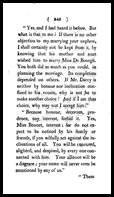Contradictions in Defamation Cases
January 6, 2011Before its holiday break, the European Court of Human Rights released two judgments in defamation cases, Novaya Gazeta V Voronezhe v. Russia and Sofranschi v. Moldova. Both cases concern allegations of abuse and irregularities. While both judgments contain good elements, in my opinion they also reveal faulty reasoning on the part of the Court. Most interestingly, the judgments contradict each other on some crucial points. Thus one judgment provides alternatives to the shortcomings of the other.



